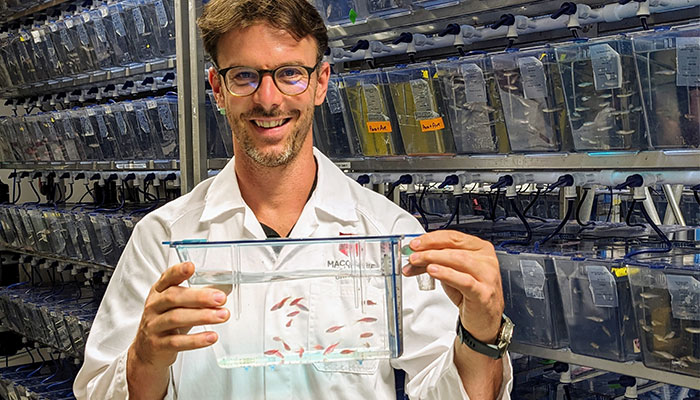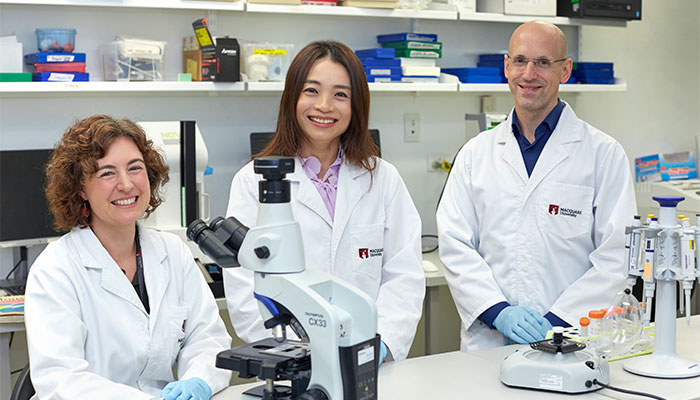Topics
Please explain: Should you wear sunscreen all year round?
Summer may be officially over, but here's why you should wear sunscreen every day of the year. Macquarie University general practitioner at MQ Health's Skin Cancer Clinic, Dr Vivianne Xia, explains.
World first: Zebrafish discovery to speed testing of MND and dementia treatments
Tiny, transparent fish have made it possible for Macquarie University neuroscientists to observe damaging protein clusters forming in real time, opening the way for testing potential early interventions for motor neuron disease (MND) and dementia.
Surprising risk factors in adult hearing loss: data review
Chemotherapy, radiotherapy, certain strong antibiotics, and even COVID-19 have emerged as surprising risk factors for adult-onset hearing loss.
How three hours could add up to a better retirement
A three-hour online course covering health and career considerations as well as financial planning can better equip people as they prepare for retirement, researchers have found.
Please explain: The rise and rise of vapes
On January 1 it became illegal to import disposable vapes, and while Australia waits for legislation to make selling them without a prescription unlawful, why are young people still taking up the deadly habit?
Boost to palliative care may be needed for cancer patients
Nearly one-third of people who died from cancer in NSW between 2014 and 2019 received hospital care that could be classified as “potentially burdensome” in the month leading up to their death, according to a new study.
New genetic therapy could be a gamechanger for MND and frontotemporal dementia
Macquarie University neuroscientists have developed a single-dose genetic medicine that has been proven to halt the progression of both motor neurone disease (MND) and frontotemporal dementia (FTD) in mice – and may even offer the potential to reverse some of the effects of the fatal diseases.
Screen test: Paper still wins in the reading stakes
Research suggests that reading on screens is a less effective way to absorb and retain information than reading the old-fashioned way, but why? And when so many of us are noticing shortening attention spans, how do we learn to concentrate on books again?
Please explain: How shift work affects your sleep
Shift work can play havoc with sleep, potentially impacting our health and wellbeing. Sleep researcher, Associate Professor Christopher Gordon, explains why this happens and what we can do to try to adapt.
New therapy will revolutionise treatment of urothelial and bladder cancers
An international clinical trial of a treatment for advanced urothelial cancer has found a new dual therapy can nearly double patients’ life expectancy.
Please explain: How to choose a new year diet
There is no time like a new year for starting a fresh diet or way of eating, but with so many options – and passionate supporters in every camp – it can be hard to know which one to choose. MQ Health Accredited Practising Dietitian Valentina Duong weighs up the pros and cons of some popular diets.
Your festive season survival plan
According to the entertainment and retail industries, Christmas is the happiest time of year. But what happens when the reality doesn’t equal the greeting card ideal? Professor Nick Titov from MindSpot offers some tips for getting through the holiday season.













